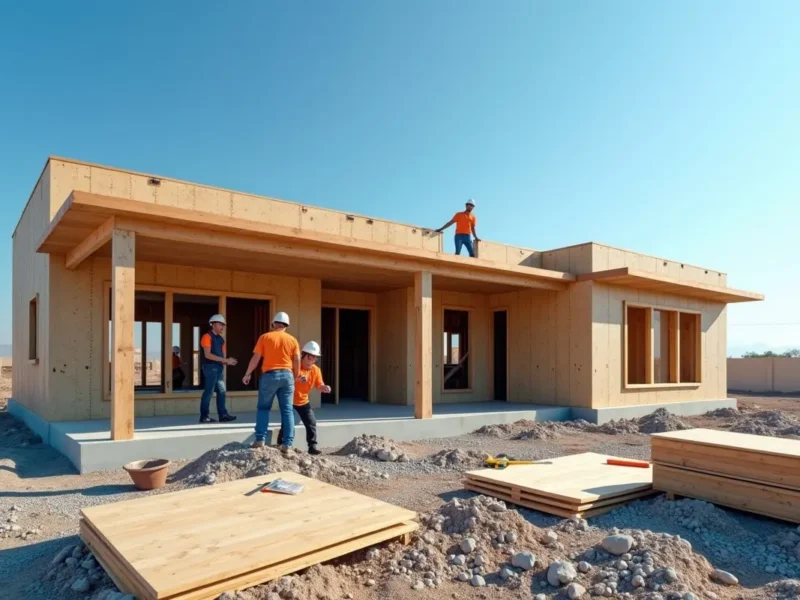Starting a home renovation project is both exciting and intimidating. The thought of updating a single room or revamping your entire home can be overwhelming at first. However, with proper planning and expert advice, you can enhance your home’s comfort, functionality, and value. Here are essential strategies to help you successfully navigate your renovation journey.
Contents
Impact of Home Renovation
Renovating your home goes beyond mere aesthetic improvements. One of the most compelling reasons to renovate is the potential increase in your property’s value. A well-executed renovation can significantly boost your home’s market worth, making it a smart long-term investment.
Moreover, renovations can dramatically enhance your quality of life. By tailoring your space to your specific needs and preferences, you create a more enjoyable and efficient living environment. Whether it’s expanding your kitchen for easier entertaining or transforming your bathroom into a luxurious retreat, these changes can have a profound impact on your daily life.
Another crucial benefit of home renovation is improved energy efficiency. Upgrading to energy-efficient appliances, enhancing insulation, or installing smart home systems can lead to substantial savings on utility bills while reducing your environmental footprint.
Essential Pre-Renovation Considerations
Before diving into your renovation project, it’s crucial to consider several key factors:
- Budget: Establish a realistic budget that accounts for materials, labor, and potential unexpected expenses.
- Scope: Clearly define the extent of your renovation. Are you focusing on a specific area or planning a whole-house transformation?
- Timeline: Set a reasonable timeframe for completion, keeping in mind potential delays.
- Regulations: Research local building codes and obtain necessary permits to ensure your renovation complies with all regulations.
- Living arrangements: Decide whether you’ll stay in your home during the renovation or need temporary accommodation.
Effective Budgeting for Your Renovation
Creating and adhering to a budget is crucial for a successful renovation. Here are some strategies to help you manage your finances effectively:
- Prioritize essentials: Focus on necessary improvements first, then allocate remaining funds to desired but non-essential features.
- Obtain multiple quotes: Compare prices from different contractors and suppliers to ensure you’re getting the best value.
- Include a buffer: Set aside 10-20% of your budget for unexpected costs or changes in plans.
- Explore financing options: Look into home equity loans, personal loans, or government grants that may be available for renovation projects.
- Consider DIY options: Take on simpler tasks yourself to save on labor costs, but know your limits and leave complex work to professionals.
Choosing the Right Renovation Professional
Selecting a reliable contractor is crucial for your project’s success. Consider these tips when making your choice:
- Conduct thorough research: Read online reviews, ask for recommendations from trusted sources, and verify the contractor’s credentials.
- Request detailed proposals: Obtain written estimates from multiple contractors, ensuring they include a breakdown of costs and timelines.
- Verify licenses and insurance: Ensure the contractor is properly licensed and insured to protect yourself from potential liability.
- Check references: Speak with past clients and, if possible, visit completed projects to assess the quality of work.
- Prioritize communication: Choose a contractor who communicates clearly and responds promptly to your questions and concerns.
Cost-Saving Renovation Strategies
Renovating on a budget doesn’t mean compromising on quality. Consider these money-saving tips:
- Refurbish rather than replace: Consider refinishing or repainting existing features instead of buying new ones.
- Shop strategically: Look for sales, compare prices, and consider purchasing floor models or slightly imperfect items at a discount.
- Choose cost-effective alternatives: Opt for materials that mimic the look of pricier options, such as luxury vinyl tiles instead of hardwood.
- Preserve original elements: When possible, keep and restore original architectural features, which can be more cost-effective and add character.
- Think long-term: Invest in quality materials and workmanship for frequently used areas to avoid costly repairs or replacements in the future.
DIY Renovation Guidelines
If you’re tackling some renovation tasks yourself, keep these guidelines in mind:
- Start small: Begin with manageable projects to build your skills and confidence.
- Invest in proper tools: Having the right tools can significantly improve the quality and efficiency of your work.
- Research thoroughly: Watch tutorials, read guides, and consult experts before starting any DIY project.
- Prioritize safety: Always use appropriate safety gear and follow proper safety protocols.
- Know your limits: Recognize when a task is beyond your skill level and don’t hesitate to seek professional help for complex or potentially dangerous work.
Common Renovation Pitfalls to Avoid
Steer clear of these common mistakes to ensure a smooth renovation process:
- Underestimating costs: Be realistic about expenses and always include a buffer in your budget.
- Neglecting functionality: Don’t prioritize aesthetics over practicality; ensure your renovations enhance your daily life.
- Ignoring building codes: Failing to obtain proper permits can lead to costly fines and complications when selling your home.
- Choosing solely based on price: The cheapest option isn’t always the best; prioritize quality and reliability over cost.
- Changing plans mid-project: Frequent changes can lead to delays and budget overruns. Plan thoroughly before starting.
By following these expert strategies, you’ll be well-prepared to tackle your home renovation project with confidence. Remember, the key to a successful renovation lies in careful planning, realistic expectations, and a balance between your dreams and practical considerations. With the right approach, you can maximize your home’s potential, creating a space that not only looks great but also enhances your daily life and increases your property’s value.



